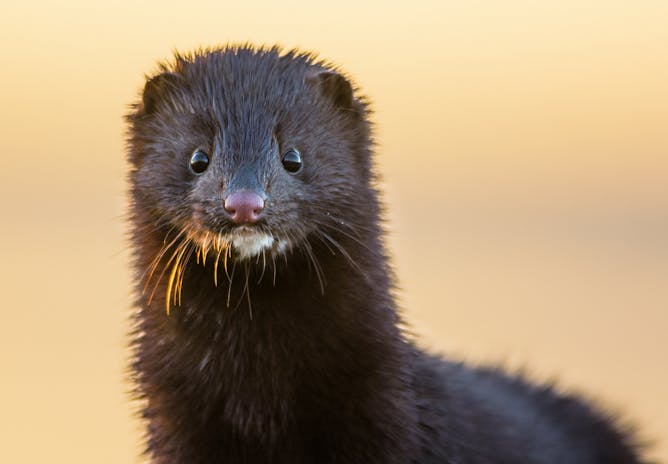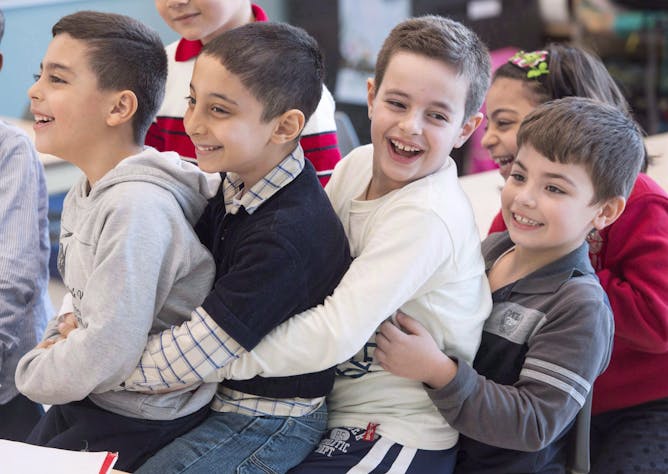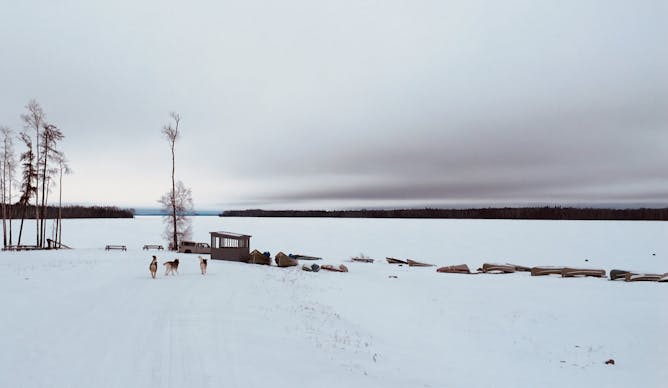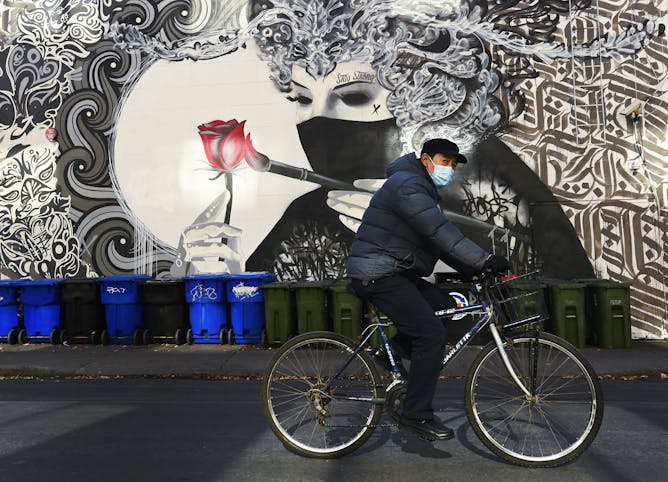|
Recent news of mass cullings of farmed minks potentially infected with COVID-19 raised disturbing ideas and images. Beyond the troubling thought of the culls, it raised the possibility not only of humans infecting minks with COVID-19, and the minks then passing the virus back to humans, but that the minks might be passing back a slightly different virus — one that mutates just enough to render useless any hard-won human immunity, whether natural or vaccine-induced.
Could sick minks really throw a wrench in the works of vaccine effectiveness? Can the threat be addressed? How will it affect vaccine design? And what about the minks? The convoluted relationship between minks, mutations and immunity would best be explained by a team of researchers from virology, immunology and pathology, bridging both human and animal health.
Today in The Conversation Canada, you’ll find just that. Viral immunologist Byram Bridle, immunologist Shayan Sharif, veterinary pathologist Leonardo Susta and veterinary virologist Sarah Wootton from the University of Guelph and virologist Samira Mubareka of the University of Toronto explain the mink link and its implications for vaccines, immunity and human health. And minks, too.
Also today:
|

Mink can be readily infected with SARS-CoV-2 and then pass the virus to humans.
(Shutterstock)
Byram W. Bridle, University of Guelph; Leonardo Susta, University of Guelph; Samira Mubareka, University of Toronto; Sarah Wootton, University of Guelph; Shayan Sharif, University of Guelph
In the disturbing scenario of human-to-mink-to-human COVID-19 transmission, the virus may mutate in mink prior to re-infecting people. That possibility makes vaccine design even more crucial.
|

Syrian refugees play with their classmates in February 2016 at a Montréal school.
THE CANADIAN PRESS/Ryan Remiorz
Adèle Garnier, Université Laval; Shauna Labman, University of Winnipeg
Québec's partial suspension of refugee sponsorship by private organizations in the province highlights the challenges of Canada’s reliance on resettlement to welcome refugees.
|

The Neskantaga First Nation has had a boil-water advisory in place for 26 years.
(Dayna Nadine Scott)
Dayna Nadine Scott, York University, Canada; Deborah Cowen, University of Toronto
Infrastructure for the mining industry has been prioritized over community-infrastructure for essential human needs.
|

The COVID-19 pandemic has seen an increase in people cycling as an alternative to public transit.
THE CANADIAN PRESS/Nathan Denette
Brian Doucet, University of Waterloo; Robin Mazumder, University of Waterloo
An increase in cyclists due to the COVID-19 pandemic means that cities need to look at what it means to develop and maintain inclusive bicycle infrastructure.
|

People’s names are an integral part of their identity, so it’s important to ensure that they are handled correctly.
(Shutterstock)
Karen Pennesi, Western University; Federica Guccini, Western University
Mishandling someone's name can lead to social exclusion and unbalanced power dynamics. Putting in the work to get names right reflects a dedication to inclusivity and respect for other cultures.
|

Les étudiants universitaires ont des taux de détresse avoisinant les 60%. Il est urgent de leur venir en aide.
Shutterstock
Christiane Bergeron-Leclerc, Université du Québec à Chicoutimi (UQAC); Ariane Blackburn, Université du Québec à Chicoutimi (UQAC); Danielle Maltais, Université du Québec à Chicoutimi (UQAC)
Les étudiants universitaires ont des taux de détresse avoisinant les 60 %. Il est urgent de leur venir en aide.
|
|
|
COVID-19
|
-
Tuti Siregar, University of Canberra
Almost all food safety authority from most countries in the world agreed that no strong scientific proof that SARS-CoV-2 is transferable through food chain.
|
|
Arts
|
-
Stevie Marsden, Manchester Metropolitan University
The story of child poverty in 1980s Glasgow speaks to current concerns across the UK.
|
|